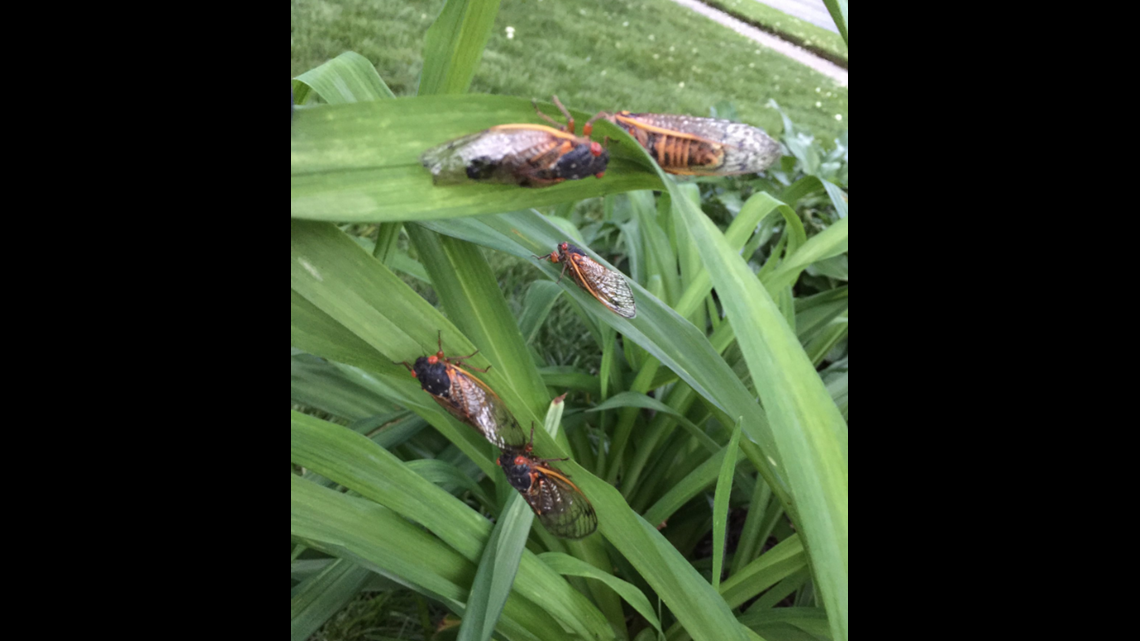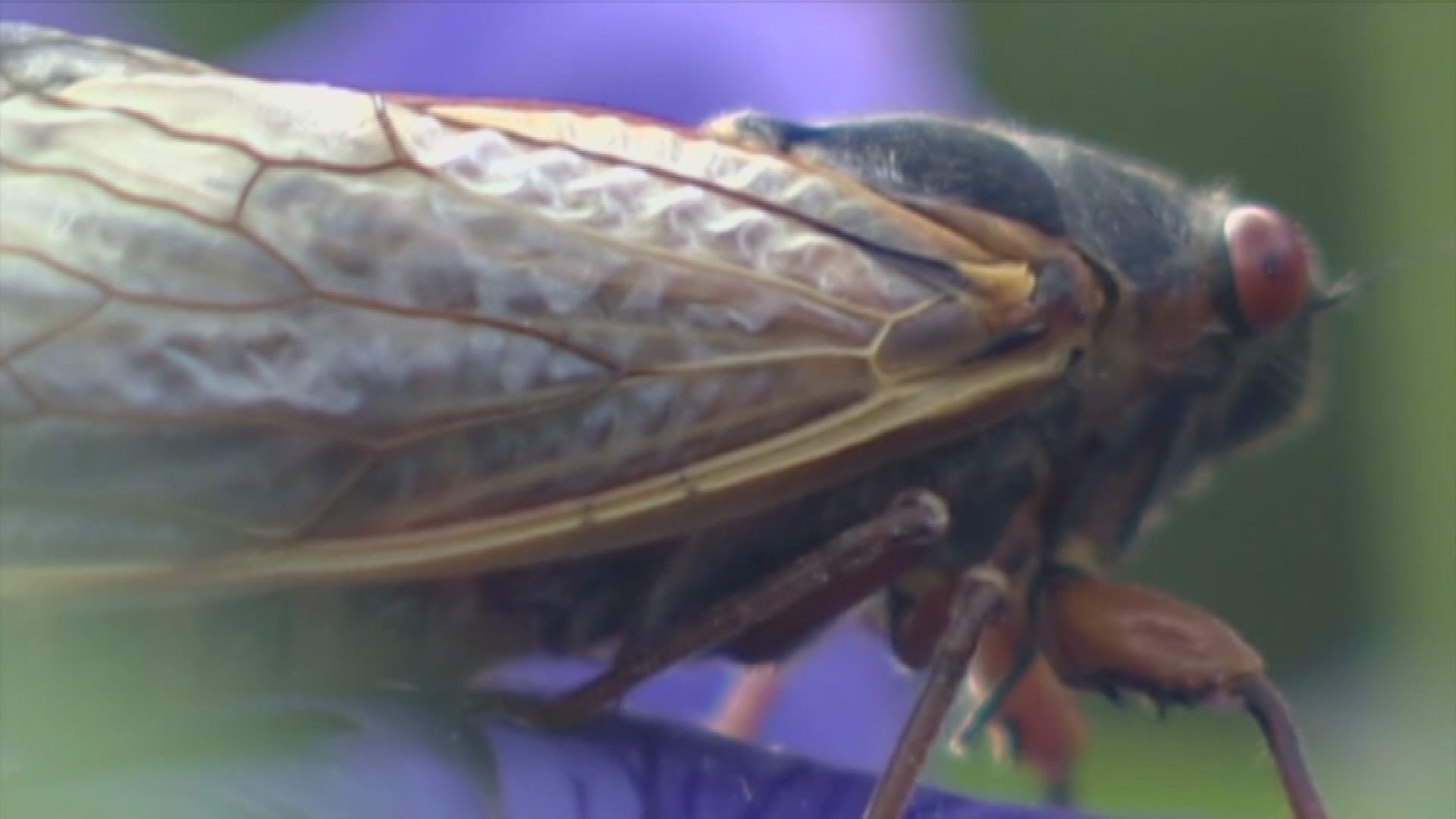COLUMBIA, S.C. — They will be digging out of the ground and with their bright red eyes, large transparent wings, and a shriek that sounds like a mix of static electricity and a maraca, cicadas look like something out of an extraterrestrial movie.
But instead of coming to a theater near you, they will be coming to many states this year.
Brood X is the name of the periodical cicadas set to emerge this year from the ground. The cicadas have been laying dormant below the surface for 17 years.
"There is that kind of apocalyptic, association that got stuck on these cicadas from early on and I think that is part of the fascination. The other part is that this really is the only part of the world where you can see something this spectacular and this over the top," said Dr. John Cooley.
Cooley is an assistant professor in residence at the University of Connecticut Hartford. He has been studying cicadas for a long time.


Cooley said, "It's that childhood fascination, they just were the ultimate cool things as a kid. The nymphs are like little tanks, they are like something out of science fiction as they walk along the ground then up the vegetation."
After 17 years of growing slowly underground, the Brood X cicadas will emerge in a number of states at an estimated 1 million or more per acre.
"You think about the number of acres that are involved in this emergence and you're into big numbers very quickly," said Cooley.
Above ground, they only live about four to six weeks. Just in time to mate. The female will lay about 600 eggs in the slits of tree bark.
Once the eggs hatch, the cicada nymphs fall off the trees and burrow underground for 17 years.
According to Cooley, there are probably 5000 to 6000 species of cicadas around the world, but this group of periodical cicadas will not be in South Carolina. We have to wait a couple of years for our brood.
Cooley said, "Then comes the big show. That is Brood XIX in 2024 and that is actually what you'll be having in South Carolina."
"It will be fairly widespread and dense. It will drop off when you get into piney areas or sandy areas," according to Cooley.
Like the summertime cicadas we have every year, periodical cicadas do not bite or sting. They may be a noise nuisance, but nothing to be afraid of.
Cooley hopes people will enjoy the show put on by the periodical cicadas. He said, "It's important to get people out of freak out mode and into this is pretty cool mode."
Periodical cicadas are an added food source to anything with a mouth. That does include humans. There are a number of cicada recipes available online.

